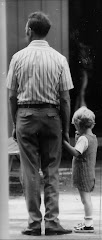Lest we forget
Last Updated: Friday, November 7, 2008 | 9:18 PM ET
CBC News
 A woman places a poppy at a makeshift memorial to Canadian soldiers killed in Afghanistan on the Tomb of the Unknown Soldier following Remembrance Day ceremonies in Ottawa, Nov. 11, 2006. (Tom Hanson/The Canadian Press) On the 11th hour of the 11th day of the 11th month, Canadians are asked to pause and remember the thousands of men and women who sacrificed their lives fighting for freedom and democracy during the First World War, the Second World War, the Korean War, the Afghanistan conflict and during peacekeeping missions.
A woman places a poppy at a makeshift memorial to Canadian soldiers killed in Afghanistan on the Tomb of the Unknown Soldier following Remembrance Day ceremonies in Ottawa, Nov. 11, 2006. (Tom Hanson/The Canadian Press) On the 11th hour of the 11th day of the 11th month, Canadians are asked to pause and remember the thousands of men and women who sacrificed their lives fighting for freedom and democracy during the First World War, the Second World War, the Korean War, the Afghanistan conflict and during peacekeeping missions.
During the First World War (1914-1918), more than 600,000 Canadian soldiers volunteered to go overseas. As of November 2007, only one was still alive — John Babcock, 107, who was born on an Ontario farm and now lives in the United States.
The troops fought in a series of costly and bloody battles and by the end of the war, more than 66,000 Canadian soldiers had been killed and 172,000 wounded.
 The 29th Battalion, part of the Second Canadian Division, advances into No Man's Land through German barbed wire and heavy fire in the right-centre of the Canadian advance on April 9, 1917. (Courtesy Veterans Affairs Canada)
The 29th Battalion, part of the Second Canadian Division, advances into No Man's Land through German barbed wire and heavy fire in the right-centre of the Canadian advance on April 9, 1917. (Courtesy Veterans Affairs Canada) They died fighting at Vimy Ridge, Hill 70, Bourlon Wood, Mons, Passchendaele and Ypres. In Ypres, Canadian soldiers were exposed to German gas attacks, yet continued to fight, showing amazing tenacity and courage in the face of danger.
During the Second World War, (1939-45) more than one million men and women from Canada and Newfoundland served in combat in the army, air force and navy. More than 47,000 men and women did not come home from that battle.
 A Consolidated VLR Liberator provides air-cover for a transatlantic convoy during the Second World War. (Courtesy Veterans Affairs Canada).
A Consolidated VLR Liberator provides air-cover for a transatlantic convoy during the Second World War. (Courtesy Veterans Affairs Canada). Canadians lost their lives fighting in Dieppe, Normandy, the North Atlantic, defending Hong Kong, during the liberation of Italy, and in many other important air, sea and land campaigns.
As of March 2007, Veterans Affairs reported that there were 205,533 living veterans of the Second World War, including 25,684 females. Their average age is 84.
 Canadian soldiers dig a trench in Korea. (Courtesy Veterans Affairs Canada)
Canadian soldiers dig a trench in Korea. (Courtesy Veterans Affairs Canada) In Korea, 516 Canadian soldiers died during the 1950-53 conflict, in which 26,791 Canadians served. The battles of Hill 355 and Hill 187, among others, saw Canadians fighting in swamps and rice fields, through torrential rain and snow, in the air and at sea.
In 2003, Canada marked the 50th anniversary of the Korean War Armistice by unveiling the Monument to Canadian Fallen at Confederation Park in Ottawa.
The words "WE WILL NEVER FORGET YOU BRAVE SONS OF CANADA" are inscribed at the base of the monument, which also contains the names of all 516 Canadians who lost their lives in Korean War service or subsequent Korean peacekeeping service.
As of March 2007, there were 13,943 living veterans of the Korean War. Their average age is 76.
 Wreath laid by a nephew at his uncle's grave at Canadian Cemetery No. 2 at Vimy Ridge.
Wreath laid by a nephew at his uncle's grave at Canadian Cemetery No. 2 at Vimy Ridge. In 2004, Canada also remembered the 60th anniversary of D-Day and the Battle of Normandy, where Canadian troops suffered 18,444 casualties, including 5,021 killed. Of all the divisions that formed part of the 21 Army Group, none suffered more casualties than the 3rd and 2nd Canadian.
It was a huge sacrifice – and a huge factor in turning the tide of the war against Hitler's Germany.
The first Remembrance Day, held in 1919 throughout the Commonwealth, was called Armistice Day. The day commemorated the end of the First World War on Monday, Nov. 11, 1918, at 11 a.m. — the 11th hour of the 11th day of the 11th month.
















No comments:
Post a Comment